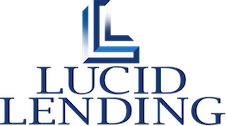Frequently Asked Questions About Financing A Home
10 Frequent Questions From Home Buyers In North Carolina
Q1: What is a mortgage broker, and how do they differ from a lender?
A1: A mortgage broker is a licensed professional who acts as an intermediary between borrowers and mortgage lenders. They help borrowers find the right mortgage loan by shopping around and comparing offers from various lenders. Mortgage brokers differ from lenders because they don’t fund the loans themselves; instead, they connect borrowers with lenders who can provide the financing.
Q2: Why should I use a mortgage broker in North Carolina?
A2: Using a mortgage broker in North Carolina can be beneficial because they have access to a wide network of lenders and loan products. They can help you find competitive interest rates and loan terms tailored to your financial situation. Additionally, mortgage brokers often provide personalized guidance throughout the mortgage application process, making it more convenient and less time-consuming for you.
Q3: How do mortgage brokers in North Carolina get compensated?
A3: Mortgage brokers typically earn a commission from the lender once the loan is closed. This commission is a percentage of the loan amount. Some brokers may charge borrowers a fee for their services, but this fee is often paid by the lender in exchange for bringing them business. It’s important to discuss compensation with your broker upfront to understand how they are paid and if there are any fees involved.
Q4: What types of mortgage loans are available in North Carolina?
A4: North Carolina offers a variety of mortgage loan options, including fixed-rate mortgages, adjustable-rate mortgages (ARMs), FHA loans, VA loans, USDA loans, jumbo loans, and more. Your mortgage broker will help you explore these options and find the one that best suits your financial needs and goals.
Q5: What are the current mortgage rates in North Carolina?
A5: Mortgage rates can change frequently due to market conditions. It’s essential to consult with your mortgage broker regularly to get updated information on current mortgage rates in North Carolina. They can provide you with insights and help you lock in a favorable rate when the time is right.
Q6: How can I improve my chances of getting approved for a mortgage in North Carolina?
A6: To improve your chances of mortgage approval in North Carolina, you can:
- Maintain a good credit score.
- Save for a down payment.
- Reduce existing debt.
- Provide complete and accurate financial documentation.
- Choose a mortgage broker who can match you with lenders more likely to approve your application based on your financial profile.
Q7: What is the typical timeline for getting a mortgage in North Carolina?
A7: The timeline for getting a mortgage in North Carolina can vary depending on factors such as the complexity of your financial situation, the lender’s processing times, and other variables. On average, the process can take 30 to 45 days from application to closing, but it may be shorter or longer in some cases.
Q8: Can I refinance my mortgage in North Carolina, and when is it a good time to do so?
A8: Yes, you can refinance your mortgage in North Carolina. It may be a good time to refinance when interest rates are lower than your current rate, you want to change the terms of your loan, or you want to tap into your home’s equity. Consult with a mortgage broker to determine if refinancing makes financial sense for your situation.
Q9: Are there any first-time homebuyer programs or incentives in North Carolina?
A9: Yes, North Carolina offers various first-time homebuyer programs and incentives, such as down payment assistance programs, low-interest loans, and tax credits. Your mortgage broker can help you explore these options and guide you through the application process.
Q10: What documents do I need to apply for a mortgage in North Carolina?
A10: When applying for a mortgage in North Carolina, you will typically need documents such as proof of income (pay stubs, tax returns), bank statements, credit reports, identification, and information about the property you want to purchase. Your mortgage broker will provide you with a detailed list of required documents to ensure a smooth application process.

